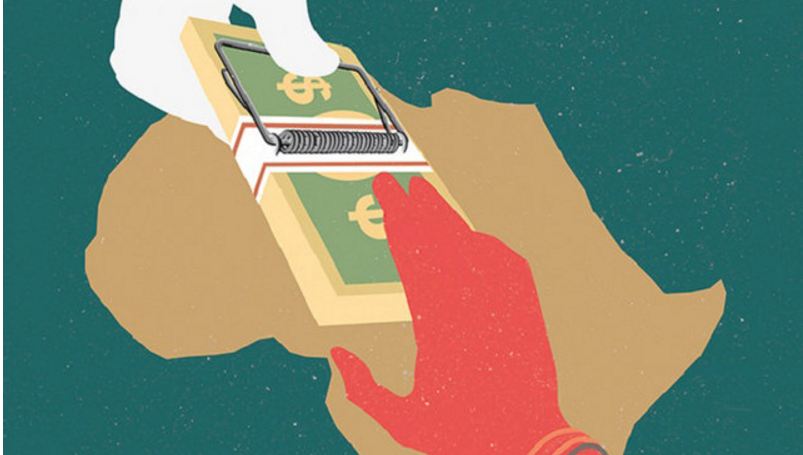Microfinance as a Game-Changer for Entrepreneurs: Tips and Guidelines
Microfinance is a revolutionary way of financial resource that has gained its support for entrepreneurs, more specifically in the developing economies. It allows in providing micro loans and other financial services to the individuals who generally cannot get finances from banking. This article explores how microfinance lends itself to entrepreneurship and indeed, will also reveal some practical recommendations and guidelines for would-be business owners.

Understanding Microfinance
Microfinance refers to the services related to finance which consists of small loans, savings accounts and insurance with the aim of giving out financial services to low income individuals or entrepreneurs. Unlike the traditional banks, MFIs are microfinance institutions that target on the underserved populations. They focus on entrepreneurship by delivering capital needed by these entrepreneurs to succeed.
Impact of Microfinance
There are outstanding positive outcomes linked to microfinance. The Microfinance Gateway reports around 140 million people worldwide who accessed microfinance in 2023. Other studies indicate that this raises recipient income by up to 20% to 30%. This puts the family out of poverty and builds up the local economy.

Why Microfinance is Important to Entrepreneurs?
- Availability of Capital: Access to capital often serves as a crucial barrier for entrepreneurs, more so in developing countries. Conventional banks require collateral or credit history as a basis for lending, which most budding entrepreneurs fail to have. Microfinance fills this gap by providing small loans without tough requirements.
- Financial Literacy and Training: Many MFIs offer trainings as part of the loan packages. The trainings educate the entrepreneur about budgeting, marketing, and business management. For example, Grameen Bank in Bangladesh offers microfinance with business education, which enhances the success rates of the borrowers.
- Community Support: Microfinance builds community power. Many MFIs have an opportunity to promote group lending where they empower individuals to lend and become responsible for one another's repayment. The community character of microfinance reduces the default rates and gives a support community among the borrowers.
Microfinance Tips for Entrepreneurs
- Investigate Local Microfinance: Before taking a microloan, investigate the local MFIs. Choose those that are known to have good reputation and good reviews from borrowers. Websites such as Kiva and Accion can be used as a guide to contact reliable MFIs.
- Ensure There is a Good Business Plan: A well-thought-out business plan is of paramount importance. Outline your business idea, target market, and financial projections just enough. The World Bank study says that entrepreneurs with business plans are 50% more likely to succeed.
- Understand the Terms and Conditions: Before signing up for a microloan, be sure to read the agreed conditions. Some may ask more than others regarding interest, just like in traditional banks. Knowing how much to pay and what is extra for the service may save you from surprise.
- Start Small: It can be done probably by taking a small loan. This is easier to evaluate for success or failure because it involves low risk. Once your business begins succeeding and you build a positive credit history, go ahead and borrow more.

How to Be a Successful Microfinance Loan Borrower?
- Monitor Your Finances: Always have proper financial records. Using simple accounting software or apps to track income and expenses, so managing the cash flow helps you well before any funding that is expected. Prepare for future funding opportunities.
- Customer Service: Excellent customer service would set your business aside from competitors. Happy customers are likely to return and refer your services to others. According to a Bain & Company report, almost 25% to 95% profit can be increased by increasing the customer retention as little as 5%.
- Connect with Other Entrepreneurs: Connecting with other entrepreneurs can also be your source of the best insights and support. Connect with local business groups or online forums where you may share your experiences with others and learn from them. Networking may also expose you to potential partnerships or referrals.
- Be Prepared for Challenges: Entrepreneurship has problems too. Prepare to receive setbacks and learn from them. Resilience is the key. According to a study released by the University of Pennsylvania, successful entrepreneurs often attribute their achievements to their ability to adapt and persist.
Future of Microfinance
- Technology Integration: Certainly, the future of microfinance is definitely promising with the integration of technology. With digital platforms, loans and financial education have become very easy to access for entrepreneurs. Some fintech companies like Tala and Branch are examples of startups that offer microloans through mobile apps.
- Higher investment: As an increasing number of people become aware of the benefits of microfinance, more investors join this industry. According to Global Impact Investing Network, the impact investing is expected to rise up to $1 trillion by 2025. This will probably bring in more opportunities for entrepreneurs worldwide.
Microfinance can be a business catalyst for the aspiring entrepreneur. It opens up channels of access to capital and resources that most people are denied privilege to. A lesson or guidelines in this article empower entrepreneurs and end enthusiasts to work effectively through microfinance in launching and running a business.
(Writer:Hoock)





